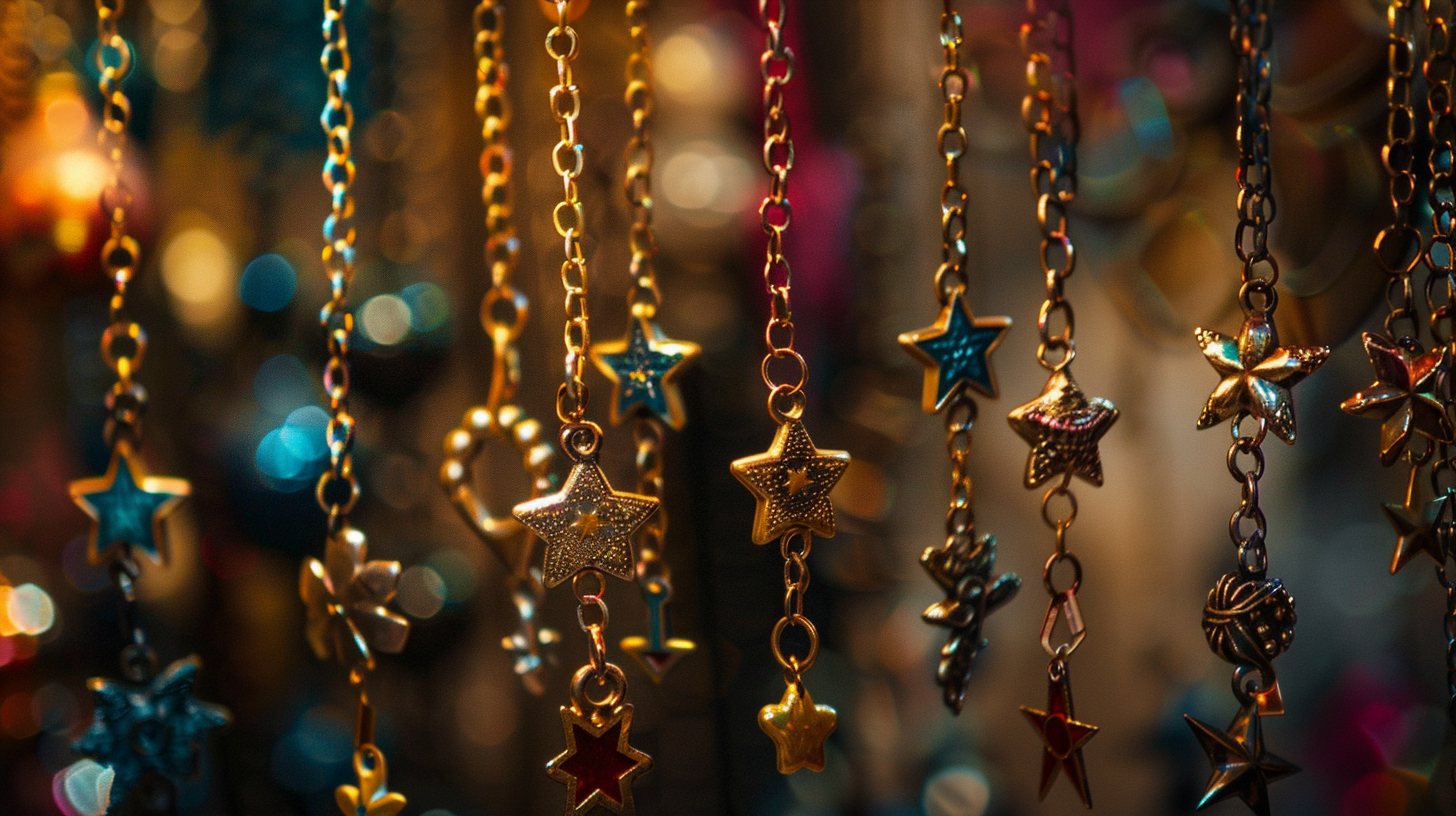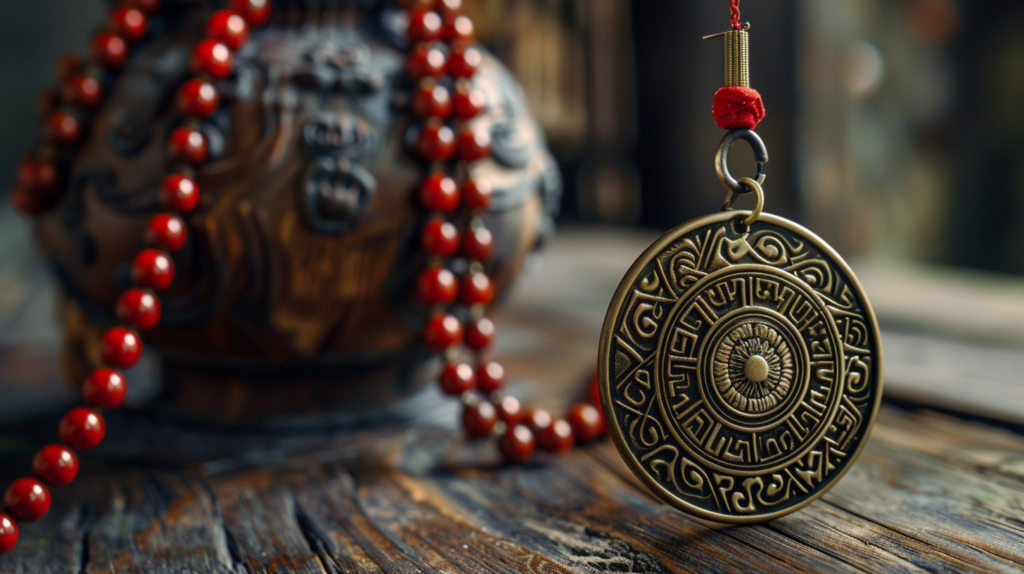Book Appointment Now
Are Good Luck Charms Sinful? A Comprehensive Exploration
Are good luck charms sinful? Explore the history, cultural significance, and religious perspectives surrounding the use of lucky charms. Discover the psychological and sociological aspects, examine the intentions behind their use, and learn about alternatives to relying on these objects for protection and guidance.

Good luck charms have been a part of human culture for centuries, with people from various backgrounds and beliefs turning to these objects for protection, guidance, and prosperity. From a rabbit’s foot to a four-leaf clover, these charms hold significant meaning for those who believe in their power. However, the question remains: are good luck charms sinful? In this comprehensive blog post, we’ll explore the history, cultural significance, and religious perspectives surrounding this topic.
What are Good Luck Charms?
Good luck charms come in many forms, each with its own unique history and cultural significance. Some common examples include:
- Rabbit’s foot
- Four-leaf clover
- Horseshoe
- Dreamcatcher
- Evil eye amulet
These charms are often carried or displayed with the belief that they will bring good fortune, ward off evil, or protect the owner from harm. The psychological reasons behind believing in good luck charms can be attributed to the human desire for control and security in an uncertain world. Superstition also plays a significant role in the use of these charms, as people seek to influence outcomes through objects they believe hold special powers.

The Perspective of Different Religions on Good Luck Charms
Christianity
In Christianity, the use of good luck charms is often viewed with skepticism or outright disapproval. The Bible teaches that believers should put their trust in God rather than in objects or superstitions. The concept of idolatry, which involves worshipping or attributing divine power to objects, is strongly condemned in Christian teachings. However, opinions on the use of good luck charms can vary among different Christian denominations.
Islam
Islam also discourages the use of good luck charms, as it emphasizes the importance of trusting in Allah’s plan. Relying on objects for luck or protection is seen as a form of superstition that detracts from one’s faith in God. Muslims are encouraged to seek guidance and support through prayer and devotion rather than through material objects.
Judaism
In Judaism, the use of amulets and talismans is not universally accepted. While some Jewish traditions incorporate the use of protective charms, such as the hamsa or the mezuzah, the emphasis remains on faith and trust in God. The Torah warns against engaging in superstitious practices and encourages individuals to rely on their relationship with the divine.
Buddhism and Hinduism
In Buddhism and Hinduism, the concept of karma plays a significant role in understanding luck and fortune. Karma refers to the idea that one’s actions, both good and bad, have consequences that shape their future experiences. While sacred objects, such as prayer beads or statues, are used in these traditions, they are not typically viewed as good luck charms in the same sense as in Western cultures. Instead, they serve as aids for spiritual practice and devotion.
The Psychological and Sociological Aspects of Good Luck Charms
The perceived effectiveness of good luck charms can be attributed, in part, to the placebo effect. When someone believes that an object has the power to bring good fortune or protection, they may experience positive outcomes due to their own heightened sense of confidence and optimism. This effect is further reinforced by confirmation bias, where individuals tend to focus on evidence that supports their beliefs while ignoring contradictory information.
Cultural beliefs also play a significant role in the use of good luck charms. In many societies, these objects are deeply ingrained in traditional practices and superstitions. The use of charms can serve as a way to connect with one’s heritage and community, as well as to cope with the uncertainties of life.
Are Good Luck Charms Sinful?
The question of whether good luck charms are sinful is a complex one that depends on various factors, including personal beliefs, intentions, and the specific context in which the charms are used.
One key consideration is the intention behind using good luck charms. If an individual relies solely on the charm for protection or success, neglecting their faith or personal responsibility, it could be argued that this constitutes a form of idolatry. On the other hand, if the charm is used as a reminder of one’s faith or as a comforting symbol, without placing undue importance on the object itself, it may be seen as less problematic.
Ultimately, the line between superstition and religious devotion can be difficult to define. It is up to each individual to examine their own beliefs and practices, and to make decisions based on their personal convictions and conscience.
Alternatives to Good Luck Charms
For those who wish to move away from relying on good luck charms, there are several alternatives that can provide a sense of comfort, protection, and guidance:
- Strengthening one’s faith: Developing a deeper connection with a higher power through prayer, meditation, or spiritual practice can provide a sense of security and purpose.
- Cultivating a positive mindset: Focusing on personal growth, self-confidence, and optimism can help individuals navigate life’s challenges without relying on external objects.
- Engaging in meaningful rituals: Participating in religious or cultural practices that hold personal significance can provide a sense of connection and support.
- Seeking community support: Surrounding oneself with a supportive network of family, friends, or fellow believers can offer encouragement and guidance during difficult times.

Conclusion
The use of good luck charms is a complex and deeply personal issue that has been shaped by centuries of cultural, religious, and psychological factors. While some view these objects as harmless symbols of comfort and protection, others see them as a form of superstition that detracts from true faith and personal responsibility.
Ultimately, the question of whether good luck charms are sinful is one that each individual must answer for themselves, based on their own beliefs, values, and experiences. By examining our intentions, seeking guidance from trusted sources, and focusing on personal growth and faith, we can navigate this complex issue with wisdom and compassion.
FAQs
- Are all good luck charms considered sinful?
The sinfulness of good luck charms depends on various factors, including the intention behind their use and the specific religious or cultural context in which they are used. - Can good luck charms be used in a way that doesn’t compromise one’s faith?
In some cases, good luck charms may be used as reminders of one’s faith or as comforting symbols, without placing undue importance on the objects themselves. However, this is a personal decision that each individual must make based on their own beliefs and values. - How can I break the habit of relying on good luck charms?
Breaking the habit of relying on good luck charms may involve strengthening one’s faith, developing a positive mindset, engaging in meaningful practices and rituals, and seeking support from a community of like-minded individuals. - Are there any positive aspects to using good luck charms?
Good luck charms can serve as comforting symbols or reminders of one’s cultural heritage, and may provide a sense of psychological comfort in times of stress or uncertainty. However, it is important to ensure that the use of these objects does not detract from personal responsibility or true faith. - How do I know if my use of good luck charms is crossing a line spiritually?
Determining whether the use of good luck charms is crossing a spiritual line requires honest self-reflection and an examination of one’s intentions and beliefs. If the use of these objects begins to replace or undermine one’s faith or personal growth, it may be time to reevaluate their role in one’s life.



